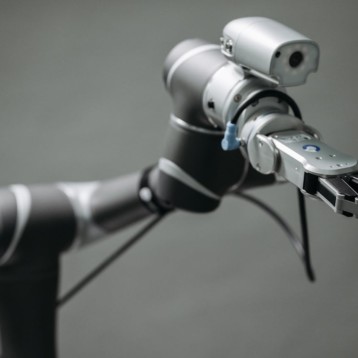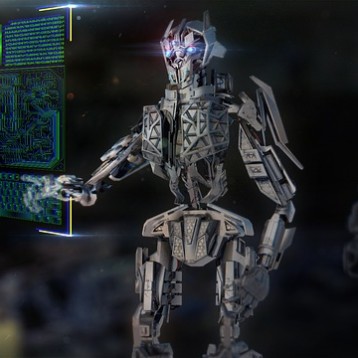Two Korean manufacturers joined forces to create what might be the first ever anti-bird robotic ground vehicle. This robo-car uses loud sounds and a green laser to scare away birds endangering military and civilian aircraft near airfields.
The Korean Atomic Energy Group and LIG Nex1 (subsidiary of LG) developed a semi autonomous six wheeled vehicle and controlled from a small control station. The robot is about the size of a small car, measuring about 8 feet and weighs 1.2 tons.
–
–
The robo-car is said to be about 20% more effective than other methods at tackling the problem. The vehicle emits extremely laud 100 dB noise as well as sound similar to bird’s predators. The robo-car’s build in cameras can track a one foot bird from almost 330 yards. At night the robo-car uses a green laser patterns that suppose to frighten birds away.
–
–
Accidents between birds and aircrafts happen all around the world. In 2011 over 14,000 bird strikes have been reported in the U.S. by the U.S. Air Force and civil aviation. Some reports estimate that over 250 people have been killed across the world as a result of bird strikes since 1988 and the damage to aircrafts in that period reached many hundreds of millions of dollars.
–
–
Given these numbers and the lack of a comprehensive solution, the Korean robotic vehicle could be a real life saver. The Korean Atomic Energy Group and LIG Nex1 started the project about 3 years ago and in late 2011 early field tests began in a South Korean military air base. The system is currently being deployed to several airfields across Korean. International customers are already raising interest in the system and some of the technology developed for the unmanned ground vehicle could also be used for other robotic vehicles.
–
–
You can watch a short video of the anti-bird robotic ground vehicle on KBS (Korean).
–
–
TFOT has covered several advanced robots including iRobot’s Negotiator, a slimmed down and affordable robot capable of climbing stairs and evaluating potential dangers, and VIPeR, a portable, lightweight robot designed to operate in an urban environment, introduced by the Israeli company Elbit. Other related TFOT stories include Yamaha’s Terrascout Autonomous Vehicle, a project that has set itself the goal of creating a high-speed autonomous vehicle capable of patrolling large areas, and the development of an algorithm that could be employed in the practice of utilizing robots in a variety of military missions.











